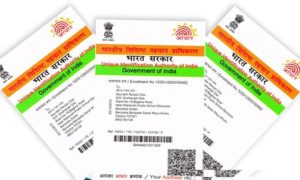All eyes are on the Budget Session of Parliament which is set to begin from January 31.
New Delhi: All eyes are on the Budget Session of Parliament which is set to begin from January 31. This year’s Budget Session will be held in two parts. The first part will be held from January 31 till February 11 and the second part will take place from March 14 to April 8. During the Budget Session, Finance Minister Nirmala Sitharaman will present the Union Budget on February 1.
A latest Parliament bulletin said there will be no Zero Hour and Question Hour in both Houses of Parliament – Rajya Sabha and Lok Sabha – during the first two days. “There shall be no ‘Zero Hour’ on January 31 and February 1, 2022. Members are informed that owing to the address of the President, during the first two days of the 8th session of the 17th Lok Sabha, there will be no ‘Zero Hour’ on January 31 and February 1, 2022,” the bulletin read.
“Members are informed that matters of urgent public importance raised during ‘Zero Hour’ will be taken up from February 2, 2022. However, it is for information of members that, to raise matters of urgent public importance during ‘Zero Hour’ on Wednesday, February 2, 2022, they may table notices on Tuesday, February 1, 2022, between 10:00 hours and 18:00 hours either online through e-portal or manually in the Parliamentary Notice Office,” the bulletin stated.
As per the Parliament Rules and Procedures, Question Hour and Zero Hour are held each day for a duration of 60 minutes. In Lok Sabha, Question Hour is held at the start of the day’s proceedings, that is, from 11 am to noon followed by Zero Hour. In Rajya Sabha, Zero Hour begins at 11 am followed by Question Hour at noon.
What is Zero Hour
Zero Hour is the time when Members of Parliament (MPs) can raise Issues of Urgent Public Importance. For raising matters during the Zero Hour, MPs must give the notice before 10 am to the Speaker and Chairman on the day of the sitting. The notice must state the subject they wish to raise in the House. However, Lok Sabha Speaker and Rajya Sabha Chairman may allow or decline a member to raise a matter of importance. Issues related to the constituencies and national concerns are being raised during the Zero Hour.
Two presiding officers in both the houses of the Parliament – Rajya Sabha and Lok Sabha – are tasked with conducting the Zero Hour. Zero Hour’ is not mentioned in the rules of procedure. Thus, it is an informal device available to MPs to raise matters without any notice 10 days in advance. This is because, generally, the matters are of public importance and such matters cannot wait for 10 days. Earlier, Prime Minister Narendra Modi had directed all the Ministers to give priority to the matters raised during ‘Zero Hour’ of the Parliament.
What is Question Hour
The Question Hour has special significance in the proceedings of the Parliament as it allows members to ask questions to ministers. While framing questions for ministers, Members of Parliament (MP) also hold them accountable for the respective ministries. The questions asked during the Question Hour is being categorised into four types – Starred, Unstarred, questions addressed to private members and short notice questions. A short notice question applies to matters of urgent public importance which should be addressed within a short period rather than the specified time allotted during the period of notice for the ordinary questions.
A set of guidelines is in place for questions that can be asked by the MPs during the Question Hour. The questions should not exceed over 150 words. Meanwhile, two presiding officers are the final authority to conduct the Question Hour in both the houses of the Parliament – Rajya Sabha and Lok Sabha.





































